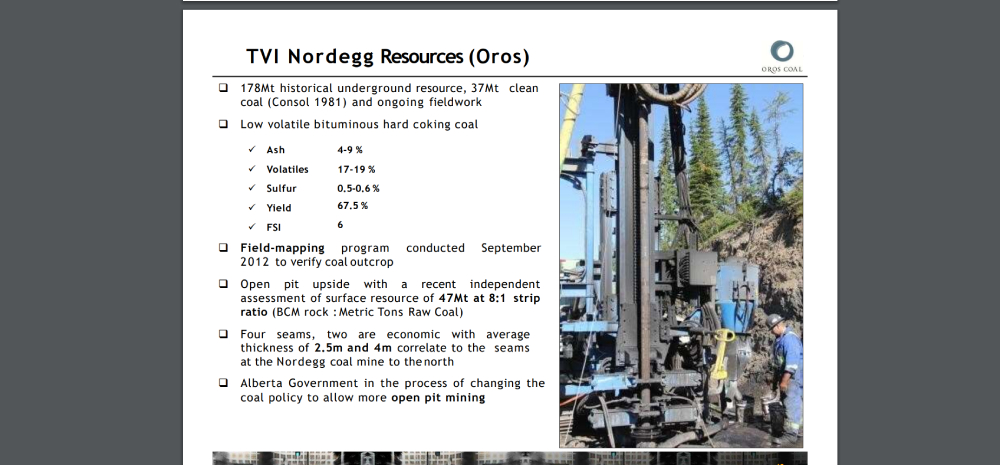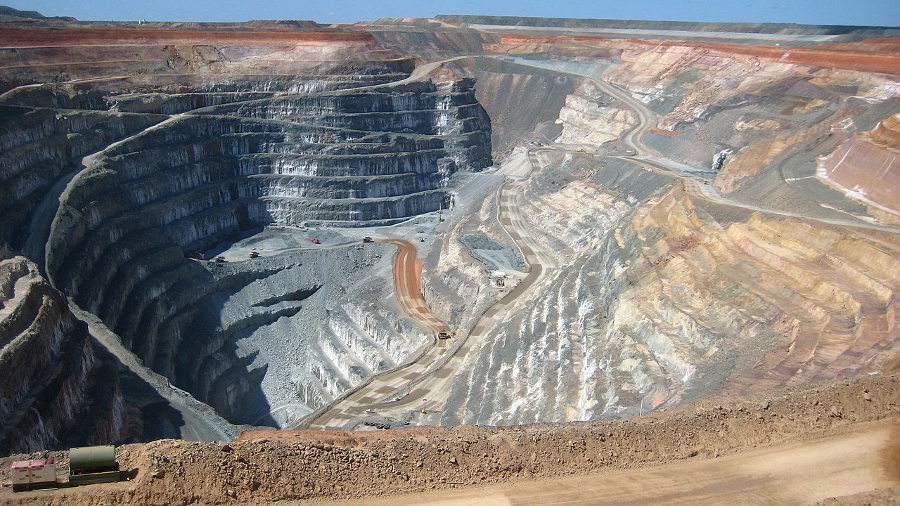Australian mining firms seeking to strip-mine metallurgical coal in Alberta’s eastern slopes of the Rocky Mountains knew well ahead of Albertans that the government was planning to rescind a law that stood in the way.
The 44-year-old Coal Policy, the result of extensive public consultation in the 1970s, kept 1.5 million hectares of Category 2 lands in the eastern slopes off limits from open-pit mining until the Jason Kenney government abruptly axed it in May of last year with no public consultation.
Alberta’s environment minister has denied that doing away with the Coal Policy “has opened up the eastern slopes for strip-mining.”
But a presentation prepared some time in 2019 by Capital Investment Partners, a firm that owns four private coal companies with extensive leases in the central Rockies, told investors: “Alberta government [is] in the process of changing the coal policy to allow more open-pit mining.”
“The CIP presentation really implies that long before Albertans heard about the cancellation of the Coal Policy, the government was consulting with coal companies at the request of coal companies and for the benefit of coal companies,” Morrison told The Tyee.
She added that the presentation “is very clear that the Australians understood the cancellation as a lifting of restrictions that allowed them to mine in areas they couldn’t access before.”
In fact, Alberta Energy Minister Sonya Savage has contradicted Environment Minister Jason Nixon by stating the removal of the Coal Policy was justified because it was an obstacle to development.
But on Jan. 18 of this year, Savage issued a statement saying the UCP government had heard the “passion” of citizens opposed to the granting of coal leases and had cancelled some recent ones.
Critics noted Savage’s statement left unchanged the vast majority of coal leases in the eastern slopes that now can be mined because of the axing of the Coal Policy. A former Alberta civil servant called Savage’s statement a misleading “trick.”
The Kenney government has retreated into silence in the face of growing outrage with both Savage and Nixon refusing to take questions from the media.
Hundreds of thousands of Albertans from towns, cities and municipal districts have protested the killing of the Coal Policy because they view open-pit mining in the province’s critical watersheds as a threat to their communities, economies and livelihoods downstream.
Australian firm backs six mining plays in Alberta
CIP, an Australian firm that manages and raises capital for new coal mines, owns six private and public companies with leases covering 1,000 square kilometres in mostly formerly Category 2 lands just south of Nordegg, Alta.
Mining on those leases would impact the quantity and purity of the Ram River, the Clearwater River and their tributaries, which provide water for the City of Edmonton.
They include Phalanx Coal, Oros Coal, Mersey Coal and Ram Coal. Another CIP firm, Jameson Resources Ltd., owns leases in British Columbia and Alberta’s Crowsnest Pass on Crown Mountain.
Two of CIP’s companies, Oros Coal and Mersey Coal, registered as Alberta companies in March 2020, two months before Kenney cancelled the 44-year-old policy.
The Tyee asked CIP executives Gavin Argyle and Rahul Goel what government ministry informed them of the killing of the Coal Policy and when they received that information but has received no reply.

 A slide from a presentation dated 2019 by the Australian firm Capital Investment Partners touting its metallurgical coal mining plans in the eastern slopes of Alberta’s Rocky Mountains apparently predicts the Kenney government’s rescinding of the Coal Policy in May of 2020.
A slide from a presentation dated 2019 by the Australian firm Capital Investment Partners touting its metallurgical coal mining plans in the eastern slopes of Alberta’s Rocky Mountains apparently predicts the Kenney government’s rescinding of the Coal Policy in May of 2020.
While CIP investors knew well in advance of the Coal Policy’s eventual fate, Albertans were kept in the dark until the Kenney government announced the rescinding on a Friday afternoon ahead of the May long weekend in the early days of the pandemic.
Records show lobbyists for coal interests pressed hard to have the Coal Policy lifted, but no other members of the Alberta public were consulted in arriving at the decision.
CIP has played an active and prominent role in sparking an Australian coking coal invasion in the Canadian Rockies.
The firm introduced Riversdale Resources, for example, to the Grassy Mountain Coal Project which it purchased for $28 million in 2013.
The company later sold out to Australian billionaire Gina Rinehart in 2019 for approximately $700 million. That project is now under joint federal review but is regarded by Australian miners as critical to opening up the entire region to industrial open-pit mining.
Australian firms flagged Coal Policy as barrier to open-pit mining
CIP-owned Ram Coal pointedly described the Coal Policy as a clear obstacle to development of its 20,000 leased hectares in the headwaters of the North Saskatchewan River in a 2017 technical brief.
“The RAM property is within lands subject to the restrictions of Category 2. The Policy, as originally written, laid out that while it is possible to conduct coal exploration in Category 2 land, there is strict control by Albertan authorities. Mine development is limited to underground mining only, and even then requires approval that the surface effects of mining will be environmentally acceptable.” The report said that Ram Coal circumvented the “strict control” by gaining an exemption from the NDP government.
Atrum Coal, a Perth-based company with 260-square-kilometre leases on entirely Category 2 lands in the southern Rockies, also portrayed the Coal Policy as an obstacle to its aims.
A September 2019 presentation on its Elan Hard Coking Coal project, just north of the Crowsnest Pass in the headwaters of the Oldman River, highlights “intensive government engagement to the minister level over the past 3 months.”
The presentation, which repeatedly described the Kenney government as “engaged and supportive,” also expressed hope their multi-mine proposal would get an exemption from the Coal Policy as did the Ram Coal Aries Project from the NDP government.
In a slide titled “Strong government support” the company also describes “Alberta regulators” as “engaged and supportive” of its exploration activities in the eastern slopes. Those operations have scarred mountains with access roads and drilling holes, in preparation for open-pit mining that in some cases removes the tops of mountains.
One month before the Kenney government erased the Coal Policy, an April 2020 investor presentation expressed strong confidence the policy was soon to end.
One slide entitled “permitting dynamics” noted that “Category 2 zoning under Alberta legislation” was a clear obstacle to development.
But it added help was on the way: “Regular, proactive engagement with Alberta government has significantly increased confidence of such an approval, potentially as early as this year.”
The slide added “the Coal Association of Canada is also actively engaging the Alberta government on this general issue.”
Mining company hailed lifting of Coal Policy
Atrum Coal had an inside view of the Coal Association of Canada lobbying against the Coal Policy in 2019 because Max Wang, the managing director and CEO of Atrum Coal also served as vice chair of the Coal Association of Canada.
Wang resigned from both jobs in May, the month the Coal Policy was rescinded, and now describes himself as an “ex-mining executive.”
When the Kenney government finally carried through on its secret signals it would kill the Coal Policy, Atrum Coal was the first to offer its congratulations, saying doing away with the protective measures “represented a significant step forward.”
Atrum explained in a May 18, 2020 press release: “Under the existing policy, Category 2 designation refers to land that is generally considered not to be appropriate for open-pit coal mining. This meant that any open-pit permitting approval” for its 260-square-kilometre Elan project “would have required an exemption be granted.”
Now Atrum Coal didn’t need an exemption.
‘Pro-development and open for business’
Another company that immediately became economically viable as a result of the abolishment of the Coal Policy was Valory Resources, another Perth-based coal company.
In a 2019 presentation Valory noted that its proposed Blackstone Project occupied 14,500 hectares of Category 2 lands regulated by the Coal Policy in the headwaters of the North Saskatchewan River basin.
In a new 2021 presentation, in which Valory makes no mention of the Coal Policy, the company reveals that it “recently met with key Members of the Legislative Assembly of Alberta and received strong statements of support… which indicates that the Alberta provincial government are ‘pro-development and open for business.’” The company gathered those supportive statements into an appendix.
Valory expects to have a mine operating in the previously off-limits lands along the southeastern flank of the Rockies within 15 months.
The company’s presentation champions two letters of support from then-tourism minister Tanya Fir and Environment Minister Jason Nixon* both dated at the end of 2019.
Montem Resources, a Melbourne-based coal company, has also celebrated the killing of the Coal Policy.
It has plans for several multiple open-pit mines in the Crowsnest Pass including its 5,000 hectare Isola project near Atrum’s massive Elan project.
In a recent “exploration target summary” Montem notes, “All restrictions on issued coal leases within the former Coal Categories 2 and 3 have been removed, therefore the development status of [the] Isola [project] allows for both exploration and mining.”
On CBC radio Peter Doyle, the CEO of Montem, said mining would bring “prosperity” to the region but admitted that the “rollback of the ’76 Coal Policy has caused a flashpoint and that needs to be debated.”
In Australia the coal mining industry is a powerful and influential political force.
A 2019 investigative report found
“A wide, well-funded network of lobbyists, supported by coal’s political and media allies, has been key to protecting the interests of coal companies operating in Australia. Individuals at the executive and staff level of these organizations regularly trade places, reinforcing the connections within a system that keeps coal at the centre of Australian politics, stifling energy sector reform and action on climate change.”
*Story corrected Jan. 29 at 5:40 p.m. to correct the name of Alberta’s environment minister. ![]()
Teaser photo credit: By Calistemon – Own work, CC BY-SA 4.0, https://commons.wikimedia.org/w/index.php?curid=93792993





